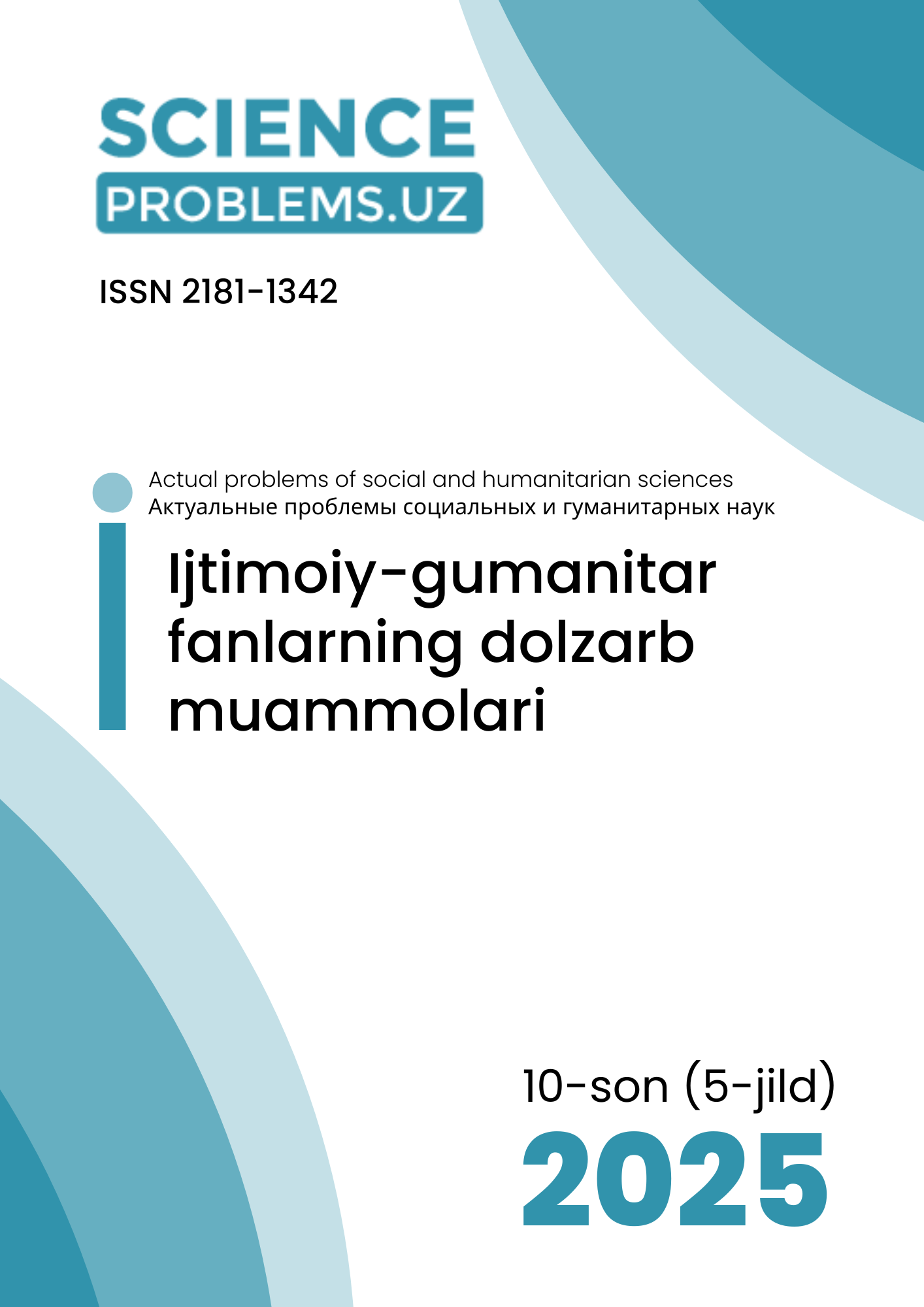PHILOSOPHICAL ISSUES OF SHAPING THE SPIRITUAL AND PSYCHOLOGICAL STABILITY OF YOUTH IN THE MODERN WORLD
DOI:
https://doi.org/10.47390/SPR1342V5I10Y2025N35Keywords:
globalization, ideological immunity, youth education, mass culture, religious fanaticism, vandalism, information attacks, national culture, critical thinking, Uzbekistan experienceAbstract
In the 21st century, globalization and the rapid development of digital technologies significantly influence all spheres of human life. At the same time, the risk of extremist, radical, and harmful ideologies affecting young people is increasing. This article examines the necessity of developing ideological immunity among youth, highlighting its social, philosophical, and psychological foundations. Special attention is given to the impact of mass culture, religious fanaticism, vandalism, and information attacks on young people's worldview. The experience of Uzbekistan is presented as an example of effective mechanisms to strengthen ideological immunity through the promotion of national culture, reading marathons, theater and music festivals, and competitions for young creators. The article also emphasizes the importance of conveying the true essence of religious values, fostering critical and aesthetic thinking, and forming a stable worldview within society.
References
1. Karimov S. S. Ma’naviy-ruhiy barqarorlik: falsafiy yondashuvlar // Falsafa va ijtimoiy fanlar. — 2023. — № 4. — B. 45–52.
2. Ismoilov I. I. Yoshlar va jamiyat: ma’naviyatning roli // Yoshlar ilmiy jurnali. — 2024. — № 2. — B. 30–35.
3. Qonuniy asoslar va yoshlarning ma’naviy-ruhiy rivojlanishi: monografiya / I. I. Ismoilov. — Toshkent: Fan, 2023. — 320 b.
4. Zamonaviy yoshlar falsafasi: o‘quv qo‘llanma / S. S. Karimov. — Toshkent: Akademnashr, 2022. — 180 b.
5. Jonmurod, S. (2025). The significance of Rumi's philosophy in shaping the spiritual stability of youth in the modern world. Western European Studies Journal, 2(1), 45–59. Retrieved from https://westerneuropeanstudies.com/index.php/2/article/download/2280/1569
6. Tilenbaeva, G. (2021). The spiritual culture of the younger generation: A theoretical analysis. E3S Web of Conferences, 60, 08021. https://doi.org/10.1051/e3sconf/20216008021
7. Shek, D. T. L. (2012). Spirituality as a positive youth development construct: A conceptual review. International Journal of Adolescent Medicine and Health, 24(1), 1–8. https://doi.org/10.1515/ijamh.2012.001
8. Goulbourne, A. (2025). The need for a grounded faith: Philosophy as a framework for youth spiritual development. Journal of Adventist Youth and Young Adult Ministry, 3(1), Article 7. Retrieved from https://digitalcommons.andrews.edu/jayyam/vol3/iss1/7/
9. Veitas, V., & Weinbaum, D. (2015). Living cognitive society: A 'digital' world of views. arXiv. https://arxiv.org/abs/1602.08388
10. Karpouzis, K. (2024). Artificial intelligence in education: Ethical considerations and insights from ancient Greek philosophy. arXiv. https://arxiv.org/abs/2409.15296








